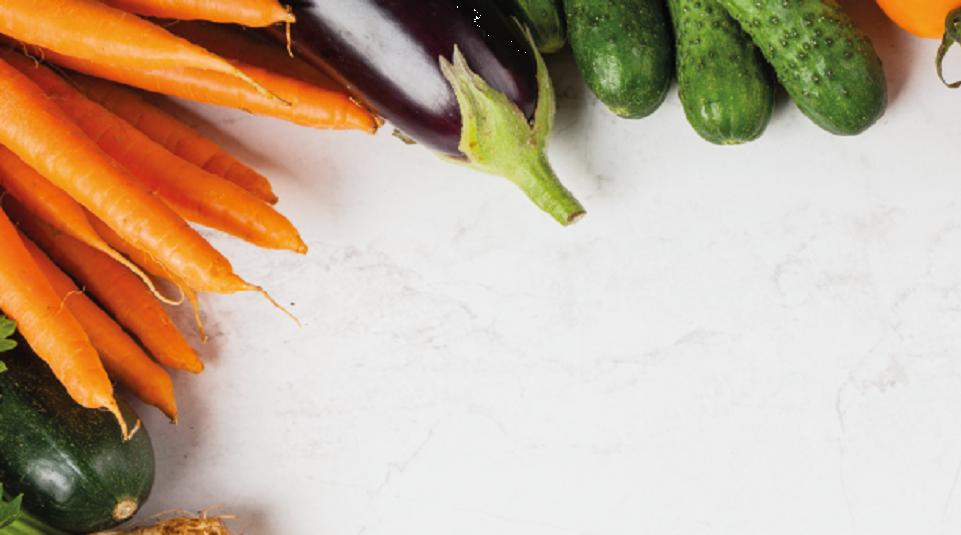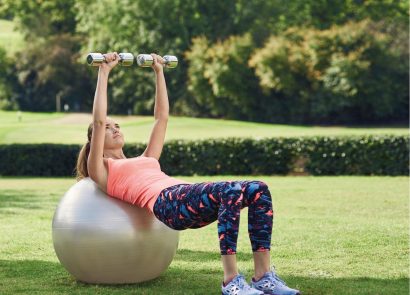Take our quiz, compiled by nutritionist and Linwoods health foods ambassador Jenna Hope, to find out…
1. How do you eat your meals?
A Walking on-the-go
B Sat down in front of my desk or the TV
C Sat down with no distractions
2. How would you describe your energy levels?
A I struggle to get through the day and wake up exhausted
B I experience regular energy dips
C I’m on top form for most of the time and wake up well-rested
3. If you exercise, what’s your go-to workout?
A I love a long cardio session
B I love HIIT
C I’m down for some yoga or Pilates
4. How would you describe your stools?
A Sometimes runnier than I’d like
B I struggle to get them out
C Perfectly ripe
5. What’s your favourite snack?
A I’m all for salt – a bowl of fries
B I’m all for sweet – it’s ice cream any day
C I like the crunch – a pot of mixed nuts
6. Let’s chat bloating – How regularly and when do you experience it?
A Regularly, at random times throughout the day
B Regularly, after a meal
C Sometimes if I’ve eaten a bit too much
7. Do you get gassy?
A I experience it sometimes but nothing too terrible
B I don’t let people get too close
C I let a few go every now and again
8. How would you describe your joints?
A They get the odd pain
B Regularly sore
C No issues whatsoever
9. How would you say your gut symptoms affect your overall quality of life?
A It’s manageable
B I’m quite affected
C No effect whatsoever
Now, count up how many A’s, B’s and C’s you ticked to reveal your results…
A’s
If you ticked mostly A’s…
You may be experiencing some discomfort in your gut lining. Try creating a food, activity and symptom diary. When you experience symptoms of discomfort, try to record everything you’ve eaten and done over the past 48 hours alongside your symptoms. Stress can also play a role in affecting your gut health symptoms, so ensure that you’re recording tension levels too. Over a period of time, you might be able to gain an idea of how different foods make you feel – although this should be done alongside a health care professional to guide you accordingly. Remember, we are all different and these symptoms can’t diagnose gut dysfunction.
It’s also worth noting that you should try to eat a little more mindfully, rather than grabbing lunch while you’re walking between meetings. Mindful eating is vital to ensure that your brain is engaged to secrete your digestive enzymes, which allows your food to be broken down more easily. This means that you’re more likely to absorb the nutrients from your food better and, as a result, this could have profound effects on your energy levels.
If your stools are a little runny, you may want to look towards consuming more soluble fibre, as this can help to absorb some of the additional fluid present in loose stools. Try adding Linwoods Milled Organic Flaxseed (£2.99, linwoodshealthfoods.co.uk) to your porridge, smoothies and yoghurts in the morning to increase your fibre intake. Flaxseed is also high in omega 3 and is a source of calcium to help support your joint health. It’s also recommended to add beans and pulses to your main meals to help provide some prebiotic fibre – these are the foods that feed the good bacteria in the gut and therefore contribute to the making of a healthy gut profile.
B’s
If you ticked mostly B’s…
It sounds like you could have a little bit of an irritated bowel. Fear not though, as a few small changes can make all the difference. Should your symptoms persist or worsen over a period of three months, please do seek personalised professional advice. It’s great that you’re keeping seated while you’re eating, but try to engage with your food rather than frantically working your way through your lunch. Stress causes a release of cortisol (your stress hormone) which, in turn, can affect the digestion process. As a result, there’s a risk that you won’t be digesting your food properly, which could explain why you sometimes experience bloating after your meals. Simply focusing on your food more may also help you to feel more energised throughout the afternoon.
If you’re finding that your gut symptoms aren’t subsiding and you’re pounding out daily HIIT sessions, it might be time to slow things down a bit. HIIT can have an effect on your cortisol levels, which then may affect your gut health. Therefore, why not try slowing things down a bit with some yoga, Pilates or a light walk instead. If you’re struggling to get your stools out, you might need to look at increasing your insoluble fibre. This means eating more fruit, vegetables and nuts and seeds in their skins. Try switching your afternoon ice cream to some Greek yoghurt topped with shelled hemp and goji berries.
Shelled hemp is a great source of omega 3 to help support your joints, and the goji berries provide the perfect amount of sweetness, too.
It’s really important to also note that, should you feel that your gut symptoms are affecting your quality of life, it’s recommended that you visit your GP.
C’s
If you ticked mostly C’s…
It sounds like you’ve got a very healthy gut. Keep doing you! Remember to stay seated and not distracted while eating your meals, as this helps with the cephalic phase of digestion (the part where your brain becomes engaged in order to secrete digestive enzymes). You’re doing well with your fibre intake, although keep in mind that the current UK recommendations are 30g a day. Keep your fibre intake high by snacking on nuts and incorporating seeds, wholegrains and legumes into your diet. Keep up with your yoga and Pilates, although you may also want to add in some long walks every now and again to support your cardiovascular health, too.




















